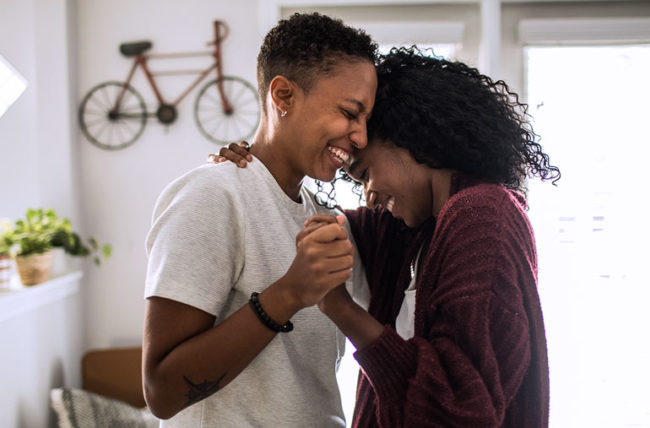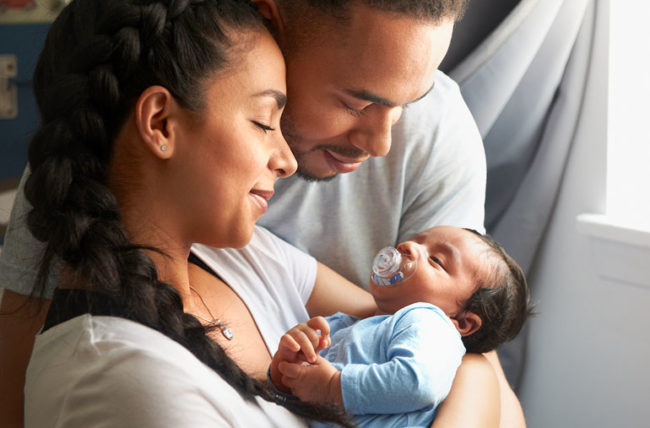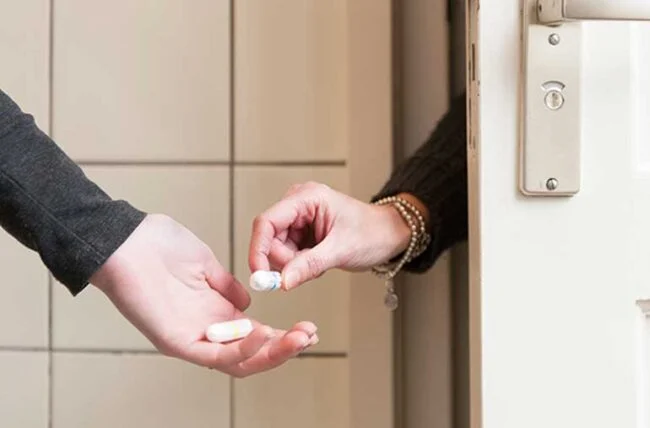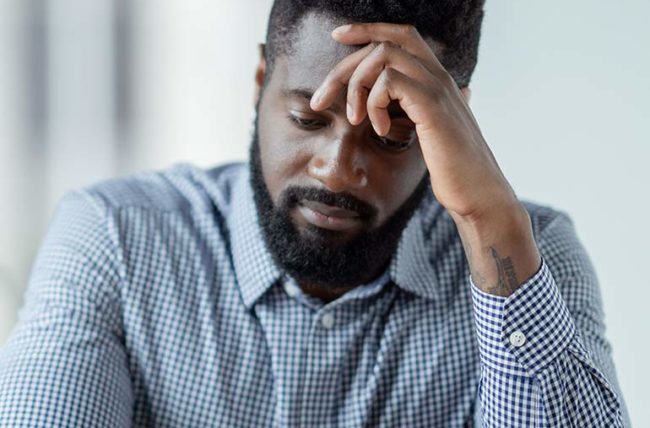It’s the perfect time to curl up by a fireplace with a book, or — if cuffing is your thing — with your crush. Should you start dating before the holidays? Should you wait until the winter is over to start dating? What is the real issue during cuffing? How can you end a relationship that isn’t right for you?
Susan Albers, Ph.D. , psychologist, explains what you can expect during the cuffing seasons and offers helpful advice for anyone looking to find a partner.
What is the cuffing period?
The Cuffing Season is the magical time during the winter months, when people feel more inclined to form relationships. The season usually lasts from late autumn, through the winter months and into the warmer spring and summer days.
What does cuffing mean?
Cuffing season, a social phenomenon, has some negative connotations. It implies that people “handcuff themselves” to a partner because of necessity or desperateness. There’s nothing wrong with wanting to be in a relationship during the dark, cold days. There are many biological reasons to want someone close at this time.
The Science Behind Cuffing Season
Dr. Albers says that when the temperature drops, and the weather gets colder earlier, it can cause a mood change. This is due to the chemicals melatonin & serotonin. Dark, cold nights may trigger a feeling of loneliness, as well as a decrease in serotonin. There is also a link between the cuffing period and seasonal affective disorders.
Seasonal Affective Disorder is a form of depression triggered by seasonal changes and environmental stress. The winter blues is milder, but SAD can affect your daily life. You may feel depressed almost all day long, every day during certain seasons. You may lose interest in the activities you enjoy, become more tired and withdrawn, and feel more lonely if you suffer from SAD. Although it can be triggered at any time, SAD is most commonly associated with the winter months due to holiday pressure and extreme weather conditions.
“SAD can intensify feelings of loneliness or depression,” says Dr. Albers. Dating is a better way to cope than hiding under the covers.
Relationships that start during the cuffing period tend to be short-term, temporary and last for the duration of the season. Some short-term relationships can blossom into long-term ones if both partners are having fun. Be warned, however: dating during the cuffing period can sometimes lead to a relationship that you do not want.
“The downside of wanting to have a relationship now is that it often causes people to lower their expectations or standards in a romantic relationship,” says Dr. Albers. They are more willing to date people who are available and convenient than those who match them.
Everyone has a different experience of dating and relationships. This is especially true when couples are the focus. Hallmark’s holiday movies are full of happy couples. We are often asked about our relationship status by friends and family at the dinner table. If we are lonely we might consider dating to satisfy our need for intimacy and companionship.
Dr. Albers says that many of us crave human connection and relationships, especially when we are feeling low. Being with someone can make us feel comfortable. It also boosts serotonin, the feel-good chemical that is produced in our brain. Having someone with you at a family event or holiday gathering can help to reduce anxiety and dread.
Dating during the cuffing period can be a great option for anyone, whether you are looking for a short-term fling, a long-term relationship, or just a way to stop your family from pestering you about your marriage plans. Just be prepared to adhere to some rules, set healthy boundaries and use healthy coping methods along the way.
What is the season for cuffing?
The following dating strategies are based on honesty, self-awareness and setting realistic expectations.
1. Be aware of your desire to be in a relationship
You should be honest with yourself. Did you suddenly want to get into a relationship, or have you been wanting one for some time? You may be looking for a friend to accompany you to an event or you might want to get swept away. Ask yourself, “What am I seeking?” This will allow you to confront your feelings and avoid getting into the muck with another person. This will also allow you to see things clearly, without having to look through rose-tinted glasses.
Dr. Albers says, “Be aware and know what you are looking for.” Think about past relationships, what worked and didn’t work and how this has shaped your future. Your past can influence your present and future.”
2. Clarify what you want in the short and long term.
When you meet people in person, you should have an early conversation about what you are looking for. Make sure you make your expectations known on your dating app profile. Do you want a quick fling? Do you want a quick fling or a partner for upcoming holidays? If you are looking for a long-term relationship, but you just want to dip your toe into the dating pool, it’s okay.
Set expectations early so that your partners can react to your needs. It will reduce the likelihood of anyone being hurt and will eliminate all those you do not want to match up with.
Dr. Albers says, “Check in with yourself along the way to see how you feel about your relationship, whether it aligns with your values, and where you’d like to be in five or ten years.” Be honest with the person you are dating about your goals and values, but be flexible as you learn more about them.
3. Define your relationship
It’s not possible to DIY everything. When it comes to the cuffing period, you should work together with your partner to define your relationship. Sit down with your partner and define your relationship by facing each other. You’ll also want to communicate with your partner when your feelings change, just as you would set expectations at the start.
Dr. Albers says that the terminology is very important in this case. How you frame a relationship can prevent hurt feelings and allow you to leave a relationship in good terms.
4. Avoid making plans too early
You don’t need to plan ahead if you are in a relationship that is short-term. This implies that you expect them to stay around for a long time. If your partner is looking for concert tickets for an upcoming date in May or June then they are probably thinking long-term.
“Take it one week at a time,” advises Dr. Albers. This will keep you from getting stuck in a relationship which may not be right for you.
5. Prepare for the Holidays
You’ll also want to let other people know who you are bringing to the party so that they can be prepared and respond appropriately. Be mindful of the way you introduce your partner. The label you choose will tell them whether your relationship is short-term or long-term.
“Bring someone home for the holidays to reduce awkward questions about your relationship status from family members,” advises Dr. Albers.
It’s important to set clear expectations about gifts. Keep gifts simple, or choose experiences that you can share together rather than physical gifts.
“You might feel unsure about what gift to buy someone who may or may no longer be in your future,” Dr. Albers says. To make it easier, you can agree on the type of gift you want to give if you are going to exchange presents, or how much you will each invest, or even forgo gifts entirely.
6. Healthy emotional and physical boundaries
Healthy Boundaries vary from person to person. Make a list to help you decide where you want to begin. Do you want your partner to be around more than once a week or only on weekends? Do you feel comfortable staying at your partner’s home, or would you prefer to keep your relationship strictly for holiday gatherings and public places?
“Healthy boundaries for short-term relationships should be communicated clearly and from the start,” says Dr. Albers. If someone no longer meets your needs, you feel more annoyed by this person or they are crossing boundaries or you are uncomfortable with them — if you do not feel heard or respected — then the relationship might not be for you.
7. Relationships are not ghosts
There’s nothing worse than a ghosted relationship. Try to have an open and honest discussion about the reasons why your relationship doesn’t work and try to end it amicably. We’ve also got you covered if you’re concerned about breaking up with someone who you love.
Dr. Albers says, “If the relationship doesn’t work out, it’s okay to move on.” “State your feelings and end the relationship clearly.”
8. It’s okay to be single
Relationships are in flux. With relationships come a lot social pressures, to perform well and make each relationship count. It’s important to realize that being single is OK. Do not force yourself into a relationship just to meet the expectations of others. Don’t force yourself into a relationship if it doesn’t fit your values. Let go of the person if you notice red flags.
Dr. Albers says, “Dating is a big undertaking and requires a great deal of energy.” You may not have the energy to meet someone during winter. You might want to wait for spring, when you feel more energetic and the sun is shining.
It’s okay to feel hurt or disappointed if you lose a relationship and wonder what went wrong. Don’t forget the positives.
“The short-term pain will be worth it in the long-term to be in a relationship which truly matches you,” Dr. Albers says. You don’t want a relationship where you are putting in too much effort or one that doesn’t work.
What will you do if you want to know if the relationship will continue past the cuffing period?
There are some signs that your relationship may last beyond cuffing time if you:
- Somebody always sets dates for the future.
- Your relationship is discussed in the future tense.
- During the day, communication becomes more frequent.
- You and your partner will spend the weekends together.
- You can both make the other person your priority.
- Have conversations with your family about their history and genealogy.
- Spend more time with friends and family.
- Imagine the future with your partner.
It’s vital to keep in touch with yourself, your partner, and any potential suitors to ensure everyone is on the right page. If you want to avoid being alone, then you can.
“It is nice to have someone around, even if that person won’t be there forever,” Dr. Albers says.






















